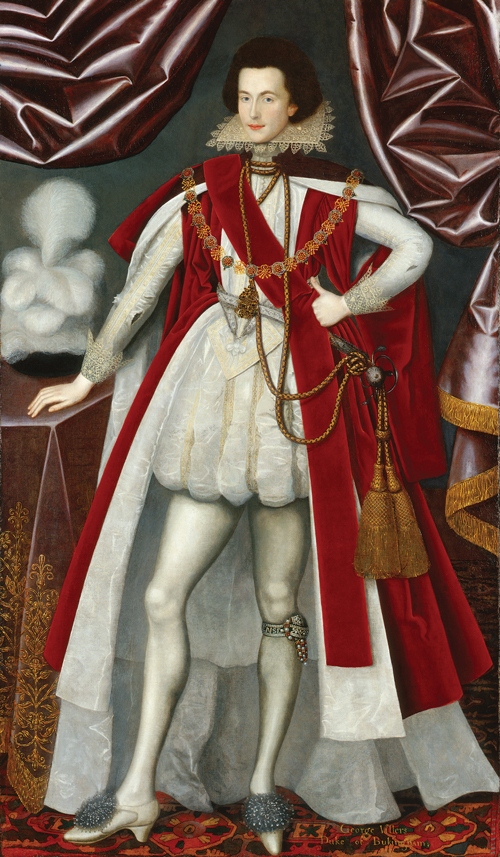Courts ideal and real
The play opens with an exchange between Antonio and his friend Delio. Antonio has been away in France and Delio asks him what he thought of the court of the French king.
Activity 1
How does Antonio reply to his friend’s question? Reread his speech (1.1.4–22) and then try to summarise it in no more than five sentences.
Discussion
Here is my response:
- Antonio admires the French court for its lack of corruption, the ‘judicious’ or wise king having banished all flatterers and people of bad character or reputation.
- The king considers this cleansing of his court to be divinely inspired; God’s work rather than his own.
- This is because of the enormous influence the royal court has on the entire country – the court that is healthy has a benign influence, while the corrupt one infects ‘the whole land’.
- Antonio then asks what the source is of this ‘blessed government’ that he found in France and answers that it is the king’s wise and truthful counsellors who, rather than flattering the king, give him candid and truthful advice about the state of the nation.
Antonio, then, opens the play with a statement of how important the royal court is to the well-being of the nation as a whole. That is what he says, but we need to think as well about the way he says it. What is distinctive about the language of Antonio’s description of the French court? Perhaps the most striking part of the speech is the long analogy he makes between royal courts generally and ‘a common fountain’. The appearance of the word ‘like’ in line 12 tells us that this analogy is a simile, a comparison of two apparently dissimilar things that uses either ‘like’ or ‘as’ to enforce the comparison. Antonio’s simile is an extended one, as he goes on to develop it in the course of the next four lines: the ‘common fountain’ from which everyone drinks should be pure, but if it is poisoned (i.e. corrupt), it spreads its contagion throughout the land.
In the main, the passage is typical blank verse, which means unrhymed lines of iambic pentameter. That is, the lines of verse in general do not rhyme and have ten syllables each, five stressed (in bold) and five unstressed, arranged in the following pattern: de dum, de dum, de dum, de dum, de dum. One of the effects of employing this fairly regular metre is that deviations from it tend to stand out. Look, for example, at the following passage:
but if’t chance
Some cursed example poison’t near the head,
Death and diseases through the whole land spread.
Line 14 is metrically quite even, but line 15 is a bit different: it would be hard to read it without placing a fairly strong stress on the first word, ‘death’. After that, the metre returns to iambic, but the brief deviation serves to draw the spectator’s attention to the word ‘death’. In this way, Webster underlines the dire consequences of a degenerate court. The point is highlighted further by the sudden appearance of a rhyme between ‘head’ and ‘spread’ in lines 14 and 15, which makes the lines stand out even more.
There is a stark contrast in the speech between the image of ‘pure silver drops’ and the language of poison, disease and death, as there is between pejorative terms like ‘flatt’ring sycophants’ (l. 6) and Antonio’s religious register: ‘the work of heaven’ (l. 10), ‘blessed government’ (l. 16). In literary studies, a register is a particular type or style of language; you can refer to a character employing a formal or informal register, for example, or to his or her use of vocabulary associated with a particular profession or sphere of activity. The fact that Antonio speaks about a royal court in a religious register reminds us that in early modern England doctrines like the divine right of kings, which claimed that kings were God’s representatives on earth, invested the monarchy with a religious significance.
So what happens next? First, Bosola enters, followed by the Cardinal. Their conversation at the very least makes us suspect that what Antonio observed in France is conspicuously lacking in Italy, in particular when Bosola reminds the Cardinal that he ‘fell into the galleys in your service’ (1.1.34). A few lines later, any doubts we might have had about Bosola’s meaning vanish, as Delio informs Antonio: ‘I knew this fellow seven years in the galleys / For a notorious murder, and ’twas thought / The Cardinal suborned it’ (1.1.72–4). We quickly grasp that in this drama, the powerful, far from surrounding themselves with wise and candid counsellors, hire men to commit crimes on their behalf. Moving from text to performance, in the theatre this point would be reinforced visually by the Cardinal’s religious costume, which tells us that even churchmen use their power for criminal ends. The enormous gap separating the French ideal from the Italian reality is driven home a bit later in the scene, when Ferdinand, the Cardinal’s brother and Duke of Calabria, reproaches two of his assembled courtiers for laughing:
Why do you laugh? Methinks you that are courtiers should be my touchwood, take fire when I give fire, that is, laugh when I laugh, were the subject never so witty.
We could hardly have a clearer indication of how far the Italian courts fall short of the ‘fixed order’ described by Antonio: in place of a rational prince advised and guided by honest advisors, we have a prince who surrounds himself with courtiers whose sole purpose is to flatter his ego with their obsequious behaviour.
So Webster begins his play with a description of an ideal court only then to show onstage a court that fails in every respect to live up to that ideal. This is a crucial part of his construction of the play’s dramatic world, but most critics have assumed that this portrayal of courtly decadence and corruption in the play text also gains from being viewed in the context of the court of King James I, who had been on the English throne for around ten years when The Duchess of Malfi was first performed. James would wholeheartedly have endorsed the sentiments expressed in Antonio’s opening speech; indeed, he had himself produced a comparable description of the ideal royal court in his book on kingship, Basilikon Doron (Greek for Royal Gift) (1599). The book is addressed to his eldest son and heir Prince Henry, and advises him to take great care in choosing his chief courtiers:
see that they bee of a good fame and without blemish: otherwise, what can the people thinke? but that yee have chosen a companie unto you according to your owne humour, and so have preferred these men for the love of their vices and crimes that ye know them to be guyltie of … And nexte, see that they be indued with such honest qualities, as are meete for such offices as yee ordayne them to serve in, that your judgement may be knowne in imploying every man according to his gifts … Make your Court and companie to bee a paterne of godlinesse and all honeste vertues to all the reste of the people.
Yet in reality, James’s court was infamous for its profligacy and corruption. He himself showered his favourites with money, offices and privileges, and those same favourites spared no expense in displaying their prestige to the world through their own lavish spending. James’s extravagance contributed to a constant need for money that he satisfied in part by selling titles of honour like knighthoods and peerages. Traditionally thought of as indicators of distinguished ancestry or rewards for loyal service, such titles in James’s court were up for grabs by anyone with sufficient money to pay for them. It is not hard to see how a court dominated by the king’s powerful favourites which funded its taste for extravagance through the unabashed sale of honours worked to point out the discrepancy between James’s theory of kingship and the actual practice. This was no doubt reinforced by the Jacobean court’s reputation for graft – James’s treasurers were notoriously corrupt – and for the sexual licentiousness that will be embodied in Webster’s play by Julia and the Cardinal. Later in the opening scene of The Duchess, when Ferdinand secures Bosola the post of the Duchess’s Provisorship of Horse on condition that he spies on his employer, the play enacts another feature of James’s court: its status as a hotbed of plotting and intrigue.

